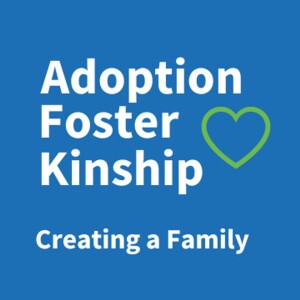
Creating a Family: Talk about Adoption & Foster Care
Kids & Family

Have you or someone you care about experienced a miscarriage or stillbirth? We talk about coping with pregnancy loss with Dr. Poonum Sharma, a Licensed Psychologist specializing in reproductive issues. She is a long term member of the Mental Health Provider Professional Group at the American Society of Reproductive Medicine.
In this episode, we cover:
Miscarriage and Stillbirth Statistics
- Distinction between a miscarriage and stillbirth. A stillbirth is the death of a baby before or during delivery. Both miscarriage and stillbirth describe pregnancy loss, but they differ according to when the loss occurs. In the United States, a miscarriage is usually defined as loss of a baby before the 20th week of pregnancy, and a stillbirth is loss of a baby at 20 weeks of pregnancy and later.
- About 1 pregnancy in 100 (1%) end in stillbirth, and each year about 24,000 babies are stillborn in the United States.
- For women who know they’re pregnant, about 10 to 15 in 100 pregnancies (10 to 15 percent) end in miscarriage. As many as half of all pregnancies may end in miscarriage. We don’t know the exact number because a miscarriage may happen before a woman knows she’s pregnant.
- Most miscarriages happen in the first trimester before the 12th week of pregnancy. Miscarriage in the second trimester (between 13 and 19 weeks) happens in 1 to 5 in 100 (1 to 5 percent) pregnancies.
- The primary cause of first trimester miscarriage is chromosomal abnormalities.
The Grief Process
- Factors that may impact grief:
- How long a woman or couple has been trying to get pregnant.
- Timing in the pregnancy of the loss.
- The number of miscarriages or pregnancy losses she has experienced.
- The cause of the miscarriage or lack of an explanation?
- Patient’s age.
- If she has existing children. Secondary infertility.
- The ability to talk about the loss to family and friends.
- Temperament of the patient and her partner.
- Pregnancy loss before others know about the pregnancy.
Helping Patients Cope
- How can those around the woman or couple support them during this time?
- How to share the news.
- How can nurses help patients cope?
- What are the symptoms of compassion fatigue that infertility nurses should be aware of.
- How can nurses prevent or cope with compassion fatigue.
This podcast is produced by www.CreatingaFamily.org. We are a national non-profit with the mission to strengthen and inspire adoptive, foster & kinship parents and the professionals who support them. Creating a Family brings you the following trauma-informed, expert-based content:
· Weekly podcasts
· Weekly articles/blog posts
· Resource pages on all aspects of family building
Support the show (https://creatingafamily.org/donation/)
Support the show (https://creatingafamily.org/donation/)
More Episodes
 2024-04-17
2024-04-17
 2024-04-10
2024-04-10
 2024-03-27
2024-03-27
 2024-03-13
2024-03-13
 2024-03-06
2024-03-06
 2024-02-28
2024-02-28
 2024-02-21
2024-02-21
 2024-02-14
2024-02-14
Create your
podcast in
minutes
- Full-featured podcast site
- Unlimited storage and bandwidth
- Comprehensive podcast stats
- Distribute to Apple Podcasts, Spotify, and more
- Make money with your podcast
It is Free
- Privacy Policy
- Cookie Policy
- Terms of Use
- Consent Preferences
- Copyright © 2015-2024 Podbean.com





